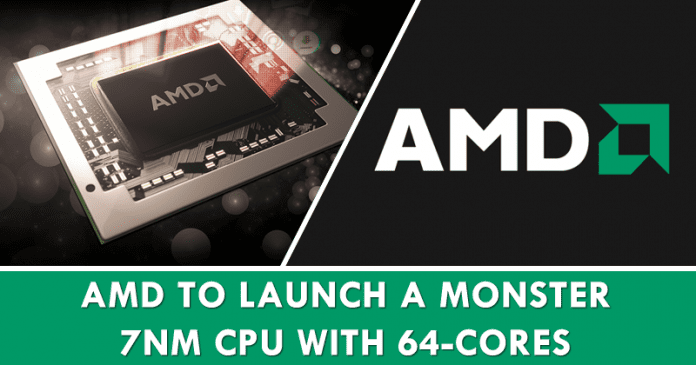AMD Epyc Rome: 7 nanometers in 2019 and with brutal 64-cores
These Epyc processors, codenamed “Rome”, would not arrive until 2019 and would be the substitutes for those who would arrive this year. While 2019 will probably be based on Ryzen 2 to 12 nanometers, the Rome of 2019 would be based on Zen+, the new architecture that would drop to 7 nanometers, and that will debut the Ryzen next year. The Epyc processors, which beat the Intel Xeon in all price ranges, were the response of AMD after being removed from the server market for a decade, and where Intel has dominated as it wanted. This is the beginning to change in the last year, and it seems that it will go further in the next. While the current Epyc chips have the range from 8 to 32 cores (with 16 and 64 threads, respectively), the 64-core and 128-thread processors will arrive next year. There will be two different “die”: one that will reach 48 nuclei, and the other that will reach the 64 nuclei.
Intel “only” has a 24-core processor
Intel currently has no processor that can cope with the monstrosity that AMD has in hand in the Xeon range. The only thing that currently it has 64 cores are the Xeon Phi, but they are used for research tasks and mathematical calculations, is not recommended for servers. The Intel Xeon processor that has more cores now is the Intel Xeon E7-8894 v4, with “only” 24 cores inside. The AMD Epyc 7501, 7551 and 7601 already surpass that chip with 32 cores and cost less than half. Such a large number of cores makes the frequency suffer, so these processors are not meant to play. For the moment, this year most likely we will see 12-nanometer Epyc processors in summer (based on the same Ryzen 2 process that we will know in April for our computers), also using the same socket as last year’s models. In 2019 it would require a new socket, which again would last two years, making it easier for companies to replace them and improve performance without having to change the other components, such as the motherboard. So, what do you think about this? Simply share all your views and thoughts in the comment section below.
Δ


